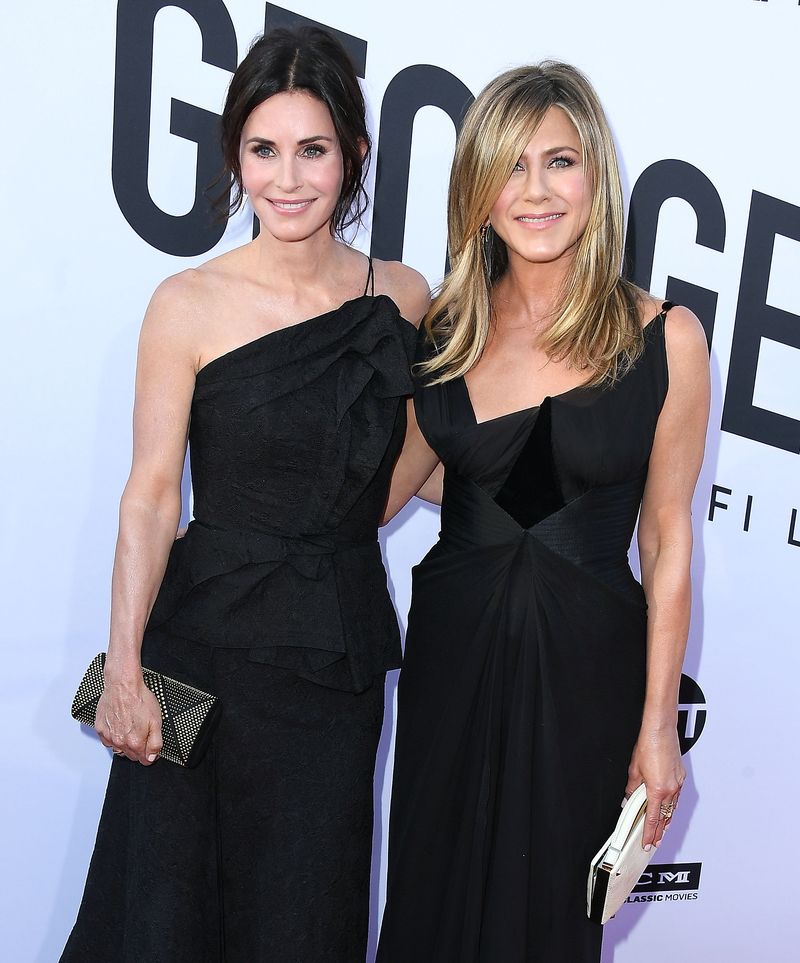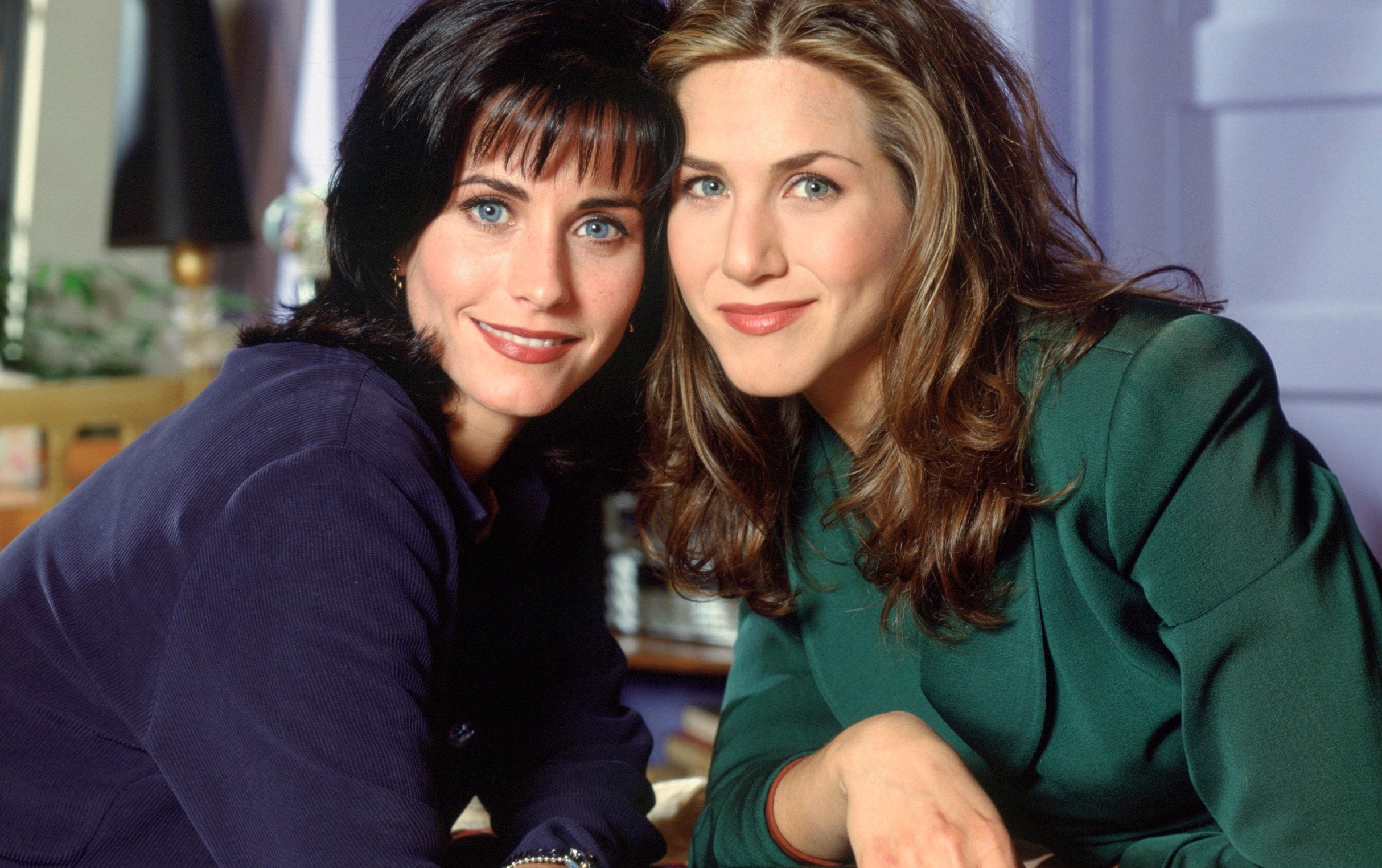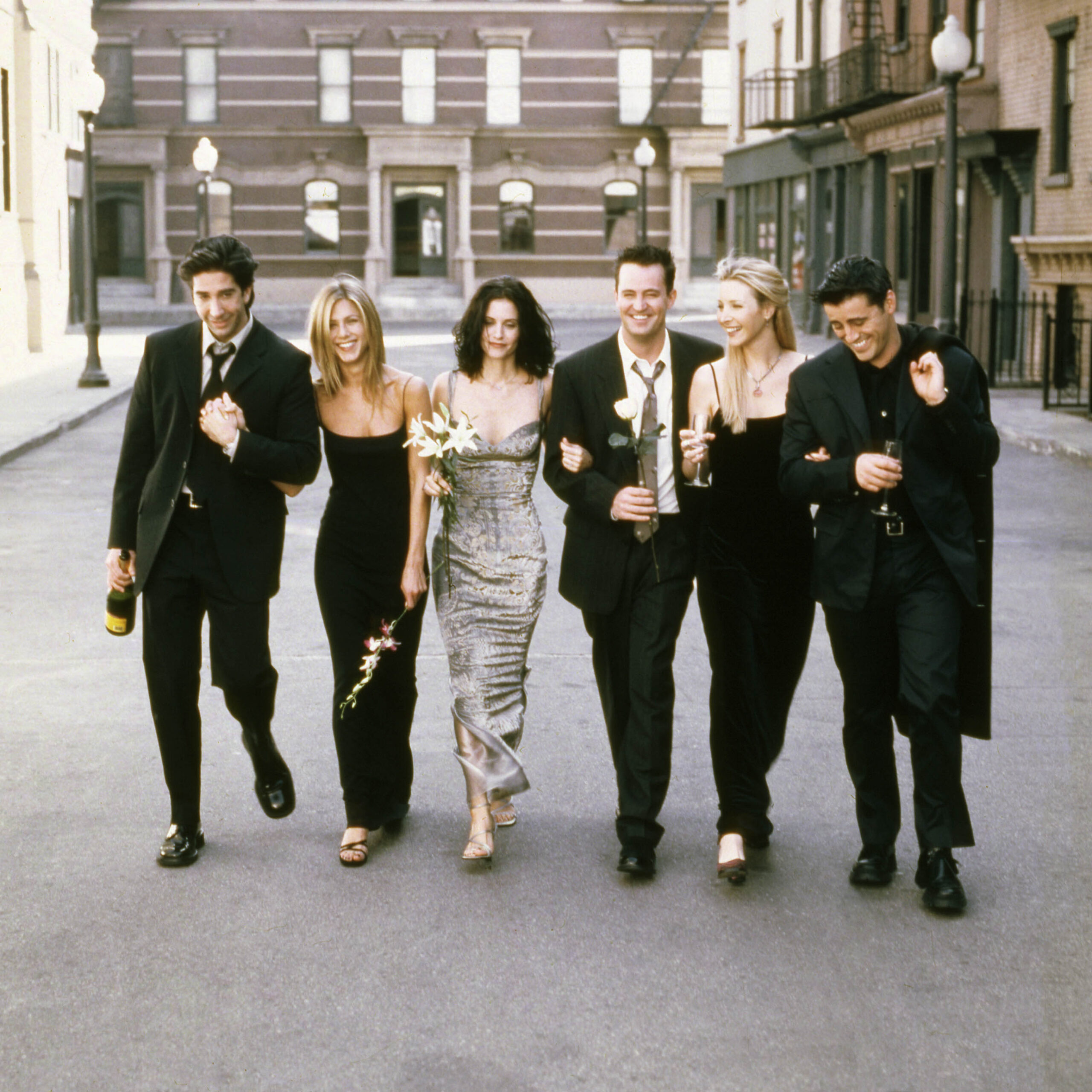
“Friends” and the illusion of perfect adult friendships
The friendships of Friends are something of a marvel. Six vastly different people in their young adulthood with disparate wants, goals, professions, and relationships all closely orbit one another (and a single coffee shop). Whenever they need each other, there’s always someone available to help or comfort them. Whether it’s Monica letting Rachel move into her apartment at the series’ beginning, or Phoebe rushing Ross to the airport to try to win Rachel back at the series’ end, the tightly knit bonds of their lives are so interwoven that they experience all of their milestone moments together.
Monica, Rachel, Chandler, Ross, Phoebe, and Joey live together (sometimes literally) and love each other — and eventually find their happily-ever-afters with each other, too. But the cruel lie of Friends, which comes to HBO Max for a reunion special on May 27, and so many shows like it is that in real life, friendships often don’t operate like that at all.

Television and movies have long given us unrealistic expectations for romantic relationships. There are rarely any perfectly timed meet-cutes or mad dashes to the airport, and the chances of an ironic misunderstanding that lead you to the love of your life are slim to none. But less attention has been devoted to how television and movies shape our perception of friendships, too, in ways that don’t always reflect reality.
Modern adult friendships aren’t just challenging to create and maintain — some evidence suggests they are also in decline. Twenty-two percent of millennials in a 2019 YouGov poll said they had “no friends,” compared to 16 percent of Gen Xers and 9 percent of baby boomers. The reasons can be pinned on a variety of factors: Americans today lead increasingly busy lives, and as members of our friend groups grow into their careers and relationships, incomes and schedules start to vary. People move away for new jobs or to be closer to family. Distance and time become barriers in a way they weren’t when everyone was young, single, and devoted to their found families.
But you’d never know that from watching television. From Friends to Living Single to Grey’s Anatomy to New Girl, TV reinforces the fantasy that true friendships are and should be deeply close but require no real effort to maintain. It’s a stark difference from the way we know friendships operate in our own lives — as meaningful but sometimes fleeting relationships that can eventually dissolve because we have no language, script, or social expectation for how to seriously integrate friendships into our adult lives.

When Grey’s Anatomy’s Cristina Yang (Sandra Oh) anointed Meredith Grey (Ellen Pompeo) her “person,” she originally meant it literally — she’d put Meredith’s name down as her emergency contact for a planned abortion procedure. Still in its early seasons, the show had found a way to signify the depth of their budding platonic romance. Cristina didn’t need to say much; Meredith understood her intuitively and didn’t need to crack her friend wide open in order to support her. The scene was the basis of their decade-long relationship and the seed that planted a whole new lexicon for talking about female friendship. It was as swoon-worthy as any declaration of love because it was a declaration of love — just not the one we’d been conditioned to expect.
But Meredith and Cristina’s relationship was one crafted in a writers’ room. Real friendships are rife with conflict, separations, jealousies, and reconciliations. They are relationships like any other, stretching through their growing pains and sometimes snapping from the stress of ongoing tension. But none of that ever seems to make it to a television screen. As a result, we’re left idealizing relationships that wouldn’t happen outside the context of scripted television.

TV friendships, for example, rarely depict friendships that survive big life changes. In that world, jobs, families, and children are always given more value than the friendships its characters have been building for years. Have you ever noticed how many TV shows about friendship end with everyone leaving a central, grounding location? The Friends finale had the gang say goodbye to Monica’s (Courteney Cox) purple apartment, New Girl ended with a farewell to the loft, and Broad City saw Abbi (Abbi Jacobson) leave New York in favor of Colorado. Even workplace comedies such as The Office and Parks and Recreation end with their characters moving on from the jobs that brought them all together in the first place. In every one of these shows, the story ends as the characters move on not just with their lives but also with the very narrative premise that binds them.
And as an audience, we want closure when stories end. We spend years with characters and invest in their lives.
